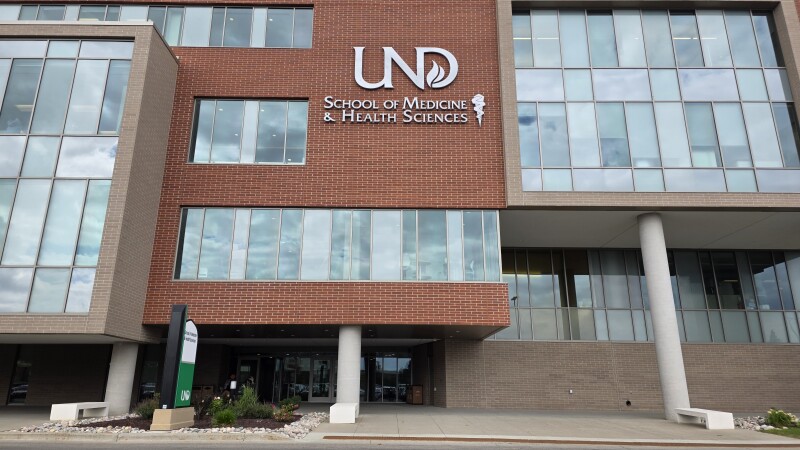World
UND’s Physical Therapy Program Earns Accreditation for Residency

The University of North Dakota’s (UND) Department of Physical Therapy has achieved a significant milestone by receiving accreditation for its Faculty Residency Program. This program is the fifth of its kind in the United States and the first in the Midwest, addressing a critical need for qualified health care educators in a landscape marked by shortages.
According to a press release from the university, this accreditation represents a multi-professional solution to the ongoing lack of qualified instructors in health care education. “Our goal is to prepare the resident to be the best faculty member they can be for a physical therapy department anywhere,” stated Gary Schindler, a professor of physical therapy at the UND School of Medicine and Health Sciences. He emphasized the broader benefits of the program, noting, “This isn’t just good for UND. It’s good for the profession.”
Details of the Residency Program
Each year, the Department of Physical Therapy selects one licensed physical therapist to participate in the residency program, where they will serve as a short-term faculty member while completing their two-year residency. Residents will gain valuable experience in teaching, curriculum design, and scholarly projects, alongside graduate-level coursework offered through the College of Education and Human Development. Upon completion, residents will receive a College Teaching Certificate and have the option to pursue advanced degrees such as the Ed.D. (Doctor of Education) or Ph.D. (Doctor of Philosophy).
In addition to academic qualifications, residents will participate in the Alice T. Clark mentoring program and attend a Faculty Development Workshop organized by the American Physical Therapy Association. Schindler, who contributed to the development of the PT residency program during his doctoral training, noted the comprehensive nature of the experience: “Residents are obviously in the classroom. They’re teaching their syllabus, leading a class… They also learn about governance in higher education and complete a research project as part of the residency.”
Addressing National Shortages in Physical Therapy Education
The need for such programs is underscored by a national shortage of physical therapists, which has created a gap in the classroom for qualified instructors. Cindy Flom-Meland, chair of the Department of Physical Therapy, highlighted the issue by pointing out that retirements in the field are contributing to faculty shortages across the country. “We see the residency as a pathway to additional faculty for us and for Doctor of Physical Therapy programs in general,” she explained.
The physical therapy profession requires a clinical doctorate for practitioners, and the UND program is designed to meet this educational demand. Accrediting agencies necessitate a certain number of research-oriented faculty with Ph.D. degrees in the classroom, further complicating the search for qualified instructors. Dave Relling, senior associate dean for health sciences at UND’s School of Medicine and Health Sciences, remarked on the scarcity of Ph.D.-trained physical therapists, which often forces programs to “grow their own faculty in-house.” He provided an example of how residency programs can fill gaps when departments are unable to hire full-time faculty due to the lack of advanced degrees.
“This helps build the next generation of physical therapy educators at a time when they’re needed most,” Relling said. The collaborative nature of the program also allows residents to gain insights from faculty across various departments, enhancing their academic perspective.
Notably, other universities with accredited PT Faculty Residency programs include Duke University in North Carolina, Nova Southeastern University in Florida, Rocky Mountain University of Health Professions in Utah, and the University of Colorado Anschutz Medical Campus. As the demand for physical therapy education continues to rise, programs like the one at UND are crucial in cultivating a well-prepared workforce for the future.
-

 Science2 weeks ago
Science2 weeks agoResearchers Challenge 200-Year-Old Physics Principle with Atomic Engines
-

 Politics1 week ago
Politics1 week agoNHP Foundation Secures Land for 158 Affordable Apartments in Denver
-

 World3 days ago
World3 days agoBoeing’s Aircraft Production: Assessing Numbers and Challenges
-

 Health2 weeks ago
Health2 weeks agoNeuroscientist Advocates for Flag Football Until Age 14
-

 Lifestyle2 weeks ago
Lifestyle2 weeks agoLongtime Friends Face Heartbreak After Loss and Isolation
-

 World2 weeks ago
World2 weeks agoGlobal Military Spending: Air Forces Ranked by Budget and Capability
-

 Lifestyle3 days ago
Lifestyle3 days agoRed Bluff High School’s Elli Nolan Named Rotary Student of the Month
-

 Business2 weeks ago
Business2 weeks agoMaine Housing Inventory Surges to Post-Pandemic High
-

 Politics2 weeks ago
Politics2 weeks agoIsraeli Air Strikes in Lebanon Kill One, Wound Seven Amid Tensions
-

 Health1 week ago
Health1 week agoFDA Launches Fast-Track Review for Nine Innovative Therapies
-

 Top Stories3 days ago
Top Stories3 days agoUrgent Search for Suspect Who Exposed Himself to Teen Girl
-

 Business2 weeks ago
Business2 weeks agoSpirit Airlines Cuts Workforce with Furloughs for 365 Pilots






